 Bernoulli was a Swiss mathematician who, with his brother Johann, pioneered German mathematician Gottfried Leibniz’s calculus. The first to use the word “integral” in solving Leibniz’s problem of the isochronous curve, Jakob used calculus to study the forms of many curves arising in practical situations. In 1713, he wrote Ars Conjectandi, or The Art of Conjecture, an important treatise on the theory of probability that contained the Bernoulli numbers, which are what?
Bernoulli was a Swiss mathematician who, with his brother Johann, pioneered German mathematician Gottfried Leibniz’s calculus. The first to use the word “integral” in solving Leibniz’s problem of the isochronous curve, Jakob used calculus to study the forms of many curves arising in practical situations. In 1713, he wrote Ars Conjectandi, or The Art of Conjecture, an important treatise on the theory of probability that contained the Bernoulli numbers, which are what?
Source: The Free Dictionary
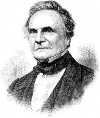 Babbage was an English mathematician and inventor who devoted most of his life and private fortune to trying to perfect a mechanical calculating machine. In 1837, he described the so-called Analytical Engine, a machine capable of performing arithmetical operations with the use of instructions from punched cards. Although the device was never built, his idea is considered the forerunner of modern computers. Babbage also invented other devices, including the cowcatcher, which is used to do what?
Babbage was an English mathematician and inventor who devoted most of his life and private fortune to trying to perfect a mechanical calculating machine. In 1837, he described the so-called Analytical Engine, a machine capable of performing arithmetical operations with the use of instructions from punched cards. Although the device was never built, his idea is considered the forerunner of modern computers. Babbage also invented other devices, including the cowcatcher, which is used to do what?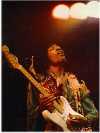 One of the tragic figures of 1960s pop music, the left-handed Hendrix taught himself to play the guitar, which he held upside down. His appearance at the Monterey Pop Festival in 1967 and the success of the album Are You Experienced? lifted him to instant stardom. A year after his legendary performance at Woodstock in 1969, Hendrix died at age 27 of an apparently accidental barbiturate overdose. Hundreds of people attended his funeral, including which well-known musicians?
One of the tragic figures of 1960s pop music, the left-handed Hendrix taught himself to play the guitar, which he held upside down. His appearance at the Monterey Pop Festival in 1967 and the success of the album Are You Experienced? lifted him to instant stardom. A year after his legendary performance at Woodstock in 1969, Hendrix died at age 27 of an apparently accidental barbiturate overdose. Hundreds of people attended his funeral, including which well-known musicians?  Schulz was the creator of the enormously popular syndicated comic strip Peanuts, which ran continuously from 1950 until 2000, when Schulz announced its end shortly before his death. The strip’s principal characters are Charlie Brown, a gentle, puzzled boy, usually failing, yet always persevering; Lucy, his bossy, know-it-all friend; Linus, a philosophical tyke with a security blanket; and Snoopy, a romantic, self-deluded beagle. Before Peanuts, Schulz worked for what magazine?
Schulz was the creator of the enormously popular syndicated comic strip Peanuts, which ran continuously from 1950 until 2000, when Schulz announced its end shortly before his death. The strip’s principal characters are Charlie Brown, a gentle, puzzled boy, usually failing, yet always persevering; Lucy, his bossy, know-it-all friend; Linus, a philosophical tyke with a security blanket; and Snoopy, a romantic, self-deluded beagle. Before Peanuts, Schulz worked for what magazine? 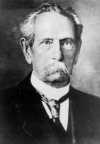 Benz was a German engineer credited with building the first automobile powered by an internal-combustion engine. His Motorwagen, the first commercial automobile, was first driven in 1885 and patented the next year. It had three wheels, an electric ignition, differential gears, and was water-cooled. Benz’s familiarity with and fondness for bicycles inspired the design of his “horseless carriage.” According to legend, who took one of Benz’s early models on the first long-distance road trip?
Benz was a German engineer credited with building the first automobile powered by an internal-combustion engine. His Motorwagen, the first commercial automobile, was first driven in 1885 and patented the next year. It had three wheels, an electric ignition, differential gears, and was water-cooled. Benz’s familiarity with and fondness for bicycles inspired the design of his “horseless carriage.” According to legend, who took one of Benz’s early models on the first long-distance road trip?  Spinoza was a Dutch Jewish philosopher whose early interest in new scientific and philosophical ideas led to his expulsion from the synagogue in 1656. His philosophy represents a development of and reaction to the thought of René Descartes, and many of his most striking doctrines are solutions to difficulties created by Cartesianism. In his masterpiece, Ethics, he constructed a monistic system of metaphysics modeled on Euclid’s Elements. How did Spinoza earn a living?
Spinoza was a Dutch Jewish philosopher whose early interest in new scientific and philosophical ideas led to his expulsion from the synagogue in 1656. His philosophy represents a development of and reaction to the thought of René Descartes, and many of his most striking doctrines are solutions to difficulties created by Cartesianism. In his masterpiece, Ethics, he constructed a monistic system of metaphysics modeled on Euclid’s Elements. How did Spinoza earn a living? 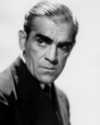 London native William Henry Pratt adopted the stage name Boris Karloff while touring as an actor in Canada. After settling in Hollywood in 1919, he began acting in silent films and achieved stardom playing the monster in Frankenstein (1931). Thereafter typecast as a horror movie villain, Karloff went on to appear in more than 100 films. His most famous television performance was in the 1966 animated special How the Grinch Stole Christmas, in which he voiced which characters?
London native William Henry Pratt adopted the stage name Boris Karloff while touring as an actor in Canada. After settling in Hollywood in 1919, he began acting in silent films and achieved stardom playing the monster in Frankenstein (1931). Thereafter typecast as a horror movie villain, Karloff went on to appear in more than 100 films. His most famous television performance was in the 1966 animated special How the Grinch Stole Christmas, in which he voiced which characters? 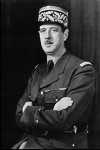 De Gaulle was a French general and statesman. He left France after it fell to the Germans in WWII and started the Free French movement in England. He returned to France after the liberation of Paris and headed two provisional governments before resigning in 1946. When an insurrection in Algeria threatened to bring civil war to France, he returned to government, helped establish the Fifth Republic, and became its first president in 1958. What was his role in the “Empty Chair Crisis”?
De Gaulle was a French general and statesman. He left France after it fell to the Germans in WWII and started the Free French movement in England. He returned to France after the liberation of Paris and headed two provisional governments before resigning in 1946. When an insurrection in Algeria threatened to bring civil war to France, he returned to government, helped establish the Fifth Republic, and became its first president in 1958. What was his role in the “Empty Chair Crisis”?  Voltaire was the pseudonym of French philosopher and writer François-Marie Arouet. One of the towering geniuses in literary and intellectual history, Voltaire was a prolific writer who authored tragedies, poems, and works on philosophical and moral problems, including Lettres philosophiques and Candide, a satire on philosophical optimism. During his lifetime, he was twice imprisoned in the Bastille and, in 1726, was exiled to England. How did Voltaire create his pen name?
Voltaire was the pseudonym of French philosopher and writer François-Marie Arouet. One of the towering geniuses in literary and intellectual history, Voltaire was a prolific writer who authored tragedies, poems, and works on philosophical and moral problems, including Lettres philosophiques and Candide, a satire on philosophical optimism. During his lifetime, he was twice imprisoned in the Bastille and, in 1726, was exiled to England. How did Voltaire create his pen name?  Following his successful management of his brother’s campaign for the presidency, Robert Kennedy served as US attorney general and was John F. Kennedy’s closest adviser, exerting considerable influence on the nation’s domestic and foreign affairs. He later won election to the US Senate and, in 1968, announced his intention to run for president. After winning the California Democratic primary in his campaign for the Democratic presidential nomination, he was assassinated. Who shot him?
Following his successful management of his brother’s campaign for the presidency, Robert Kennedy served as US attorney general and was John F. Kennedy’s closest adviser, exerting considerable influence on the nation’s domestic and foreign affairs. He later won election to the US Senate and, in 1968, announced his intention to run for president. After winning the California Democratic primary in his campaign for the Democratic presidential nomination, he was assassinated. Who shot him?